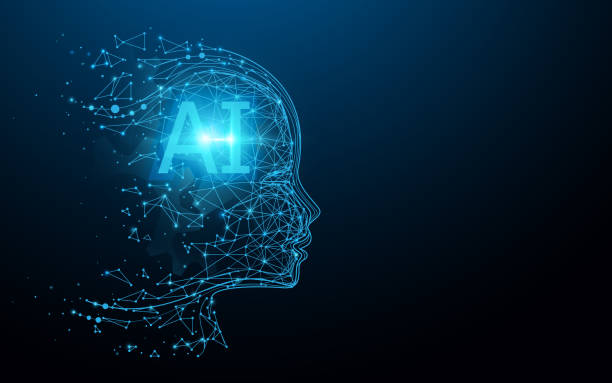
Two out of three people in Spain already turn to AI to check health-related ailments
- One in four people (24.8%) self-diagnose digitally before visiting a doctor.
- The figures are higher among the youngest (ages 16 to 19): nine out of ten consult AI about health issues, and four out of ten choose a search engine, an influencer, or AI instead of going to a doctor or the ER.
- Availability, immediacy, and privacy are the most cited reasons. Women (55%) and young people (35%) also mention privacy or “not feeling judged.”
- Half of those diagnosed with anxiety and depression in Spain use AI almost daily. This worsens the situation and fuels cyberchondria (compulsive searching for symptoms online).
- Catalonia, the Region of Murcia, and the Canary Islands lead in intensive use of AI for health.
Madrid, November 26, 2025. Artificial Intelligence (AI) has become an increasingly common tool among the Spanish population for consulting physical and mental health issues. According to Línea Directa’s study, two out of three people (66%) in Spain use AI to check a medical problem or a health-related ailment. In this regard, a generational gap is evident: nine out of ten young people aged 16 to 19 turn to this technology for health information (half of them frequently or always). Among those aged 65 to 75, 41.7% use it.
These are some of the main conclusions of Línea Directa’s latest health study, “The Dangers of Digital Self-Diagnosis”, developed in collaboration with Ruth Castillo-Gualda, PhD in Psychology and expert in Emotional Intelligence, and Dr. Justo Menéndez, a medical specialist with over 30 years of experience and Head of Emergency Services, both professors at Camilo José Cela University (UCJC). The aim of the study is to analyze the rise of AI use in Spain, how it relates to physical and mental health, and to offer recommendations for using this tool responsibly.
The rise of AI use for health issues
People do not see AI merely as a complement; in many cases, they replace the first consultation with a professional with this technology. In fact, for one in four Spaniards (24.8%), digital self-diagnosis has become their first option when a health problem arises. Among young people, this preference is even greater: 41.8% choose search engines, influencers, or AI tools instead of going to the doctor or the ER. Among those aged 65 to 75, the percentage drops to 10.6%.
The reasons driving Spaniards to turn to AI include its availability (16.3%), the immediacy of responses (12.2%), and the speed of the process (11.5%). Additionally, factors such as privacy or feeling heard and not judged are behind searches among those who are emotionally worse off, as they seek empathy in emotional matters. In this regard, gender differences stand out: 55% of women cite this reason, compared to 45% of men. There is also a generational gap: 35% of young people versus 7% of older adults.
In this context, at the national level, 18.5% of the population frequently or very frequently uses AI to consult health-related questions, consolidating the use of these tools as an everyday habit.

Catalonia (24%), the Region of Murcia (22.1%), and the Canary Islands (21.4%) are the autonomous communities with the highest percentage of people who frequently or very frequently consult AI about health problems. On the opposite end are Galicia (10.4%), Castilla y León (11.5%), and Cantabria (13.5%).
How AI use relates to mental health
The study also reveals that, for many people, AI becomes a “digital therapist” when it comes to mental health. Those who feel emotionally unwell seek support in this technology and try to ease uncertainty about symptoms or health concerns. According to respondents, searching for symptoms through AI provides more relief than doing nothing. However, this is a false sense of control and responsibility.
In this context, half of those suffering from anxiety or depression in Spain turn to AI almost daily to resolve health-related doubts. This intensive use contrasts with the much lower use among patients with chronic physical illnesses—such as hypertension (15%) or diabetes (13%)—which suggests that dependence on these tools is much more linked to psychological and emotional needs than to physical problems. In fact, the compulsive search for symptoms in digital environments, known as cyberchondria, feeds on this vicious cycle: the greater the emotional distress, the more digital searches with AI, which, far from alleviating the situation, actually make it worse.
Tips to identify misuse of AI applied to health
Given the rise of digital consultations to resolve health-related doubts and, especially, the increase in digital self-diagnosis, Línea Directa, together with experts Ruth Castillo-Gualda and Dr. Justo Menéndez, stress the importance of developing a conscious and responsible use of AI when dealing with health issues. To this end, they highlight a series of key recommendations:
- Use AI responsibly.
- Do not replace healthcare professionals with AI.
- Reject AI-based self-diagnoses and treatments without professional backing.
- Avoid cyberchondria.
- Thoughts are not diagnoses: keep perspective.
- Prioritize human connection.
- Identify the emotion driving your search.
- Take care of your inner dialogue when reading AI responses.